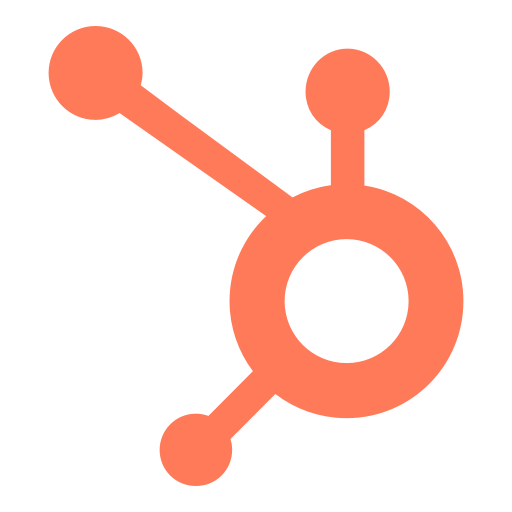Startups can benefit from using Customer Relationship Management (CRM) systems to centralize and manage customer data, leading to an improved understanding of their customers and their requirements. Nevertheless, with numerous CRM solutions available, selecting the optimal one for a startup can be overwhelming.
We have written a well-researched, extensive, and detailed guide on the best CRM for startups. Keep reading to know more.
Quick View
- monday.com – Best Overall CRM Software for Startups
- ClickUp – Best for Scalability
- Pipedrive – Best for Its User Friendliness
- Zoho CRM – Best for Contact Management
- HubSpot – Best for Extensive Feature Offerings
Products
Customer Segmentation
Task and Project Management
Reporting and Analytics
- Custom field
- Search and filter function
- Customizable project statuses
- Task checklist
- Gantt charts
- Collaboration tool
Key performance indicator tracking
Customizable pipelines and tag features
Intuitive interface and customizable workflows
Comprehensive reporting and analytics
Quick Verdict
Monday.com – Overall Best CRM for Startups
With its versatility and customizability, Monday.com is a CRM software that can specifically meet the distinctive requirements of startups. The interface is user-friendly, enabling users to efficiently handle and monitor customer data, sales pipelines, and projects all in one centralized location.
Furthermore, the software integrates with a variety of third-party tools, providing startups with a comprehensive solution to enhance their workflows and boost productivity.
Monday.com offers flexible pricing plans that can accommodate different budgets, making it a practical choice for startups seeking to streamline their customer relationship management processes without exceeding their financial capabilities.
5 Best CRM for Startups
Monday.com is a flexible and user-friendly CRM tool with a customizable interface that can be tailored to specific needs. The platform’s visual design makes it easy to use and navigate, and its features are designed to streamline workflows, increase collaboration, and improve team communication.
Monday.com integrates with popular business tools, including Google Drive, Slack, and Trello, allowing startups to consolidate their data and collaborate with other teams seamlessly.
Customer Segmentation
The custom fields and filters in Monday.com’s CRM feature aid start-ups in customer segmentation. By creating custom fields to track customer information and utilizing filters to group them, start-ups can organize customer data in a way that suits their business needs.
This segmentation helps identify customer behavior trends, enabling start-ups to personalize their marketing and messaging to specific groups, improving overall customer experience and boosting customer retention and growth.
Task and Project Management
Customizable dashboards are a key CRM feature of Monday.com that aid start-ups in task and project management. With this feature, start-ups can create custom views of their tasks and projects, including progress tracking, priority setting, and team collaboration features.
By using the customizable dashboard, start-ups can manage all their tasks and projects in one centralized location, reducing the likelihood of tasks being overlooked. Furthermore, start-ups can tailor their task and project management to their specific needs, ensuring their team stays on track and achieves their goals.
Reporting and Analytics
Customizable reporting tools in Monday.com’s CRM feature assist start-ups with reporting and analytics. These tools enable users to create custom reports to track KPIs and visualize data with a range of chart types. By utilizing this feature, start-ups can gain valuable insights into their business performance and make informed decisions based on data.
Customized reports can be focused on the metrics that matter most to the business, allowing start-ups to adjust their strategies accordingly. Moreover, Monday.com’s CRM feature provides real-time data updates, ensuring that reports are always accurate and up to date.
- Customizable dashboards and templates for task and project management.
- User-friendly interface with drag-and-drop functionality.
- Customizable reporting tools for data analysis.
- Responsive customer support.
- High pricing for larger teams and advanced features.
- Limited functionality for certain use cases, such as complex project management.
Pricing
- Basic – $9/month
- Standard – $12/ month
- Pro – $19/month
- Enterprise – Contact the monday.com sales team
For startups seeking a CRM solution that can scale with their business, ClickUp‘s customizable interface and user-friendly design make it a strong contender. With features like custom fields and tags for customer segmentation, project management tools for tracking customer projects, and integrations with Zapier and
HubSpot to automate tasks, ClickUp offers a versatile and flexible CRM solution for startups. Overall, ClickUp’s combination of ease of use and customizable functionality makes it an attractive choice for startups seeking a CRM that can meet their evolving needs.
Customer Segmentation
Startups can use ClickUp, a project management tool that doubles as a CRM, to segment their customer base using custom fields. By tagging customers with specific attributes such as industry, location, or job title, startups can create targeted marketing campaigns and personalized communications. ClickUp’s search and filter function also makes it easy to locate customers with specific custom field values, streamlining the process of customer segmentation even further.
Task and Project Management
For startups seeking a project management solution, ClickUp offers a suite of tools designed to help teams organize and prioritize customer projects. From customizable project statuses and task checklists to Gantt charts for tracking project progress, ClickUp’s features enable startups to stay on top of deadlines and collaborate effectively.
Additionally, ClickUp’s collaboration tools, such as comments and mentions, provide a streamlined communication experience for teams.
Reporting and Analytics
With ClickUp’s CRM Reporting and Analytics capability, startups can unlock valuable insights into their sales performance through the creation of tailored reports and dashboards that display real-time sales data.
By utilizing this feature, businesses can scrutinize their performance metrics, detect patterns, and monitor key performance indicators, enabling them to make data-driven decisions. ClickUp’s CRM Reporting and Analytics functionality is essential for streamlining sales processes, predicting future sales results, and improving overall sales performance.
- Customizable reports and dashboards
- Real-time sales data tracking
- Enhanced sales performance
- Predictive analysis capabilities
- Steep learning curve
- Some users may find it overwhelming due to the abundance of features.
Pricing
- Free
- Unlimited – $5/month
- Business – 1$12/month
- Business Plus – $19/month
- Enterprise – Contact sales
Startups can benefit greatly from Pipedrive CRM due to its affordability and user-friendly interface. Pipedrive is designed to be easy to use and intuitive, which allows startups to quickly set up and start using it without extensive training or resources.
Moreover, Pipedrive’s pricing plans are flexible and cost-effective, making them accessible to startups with limited budgets. By leveraging Pipedrive, startups can effectively manage their sales pipeline, track deals, and monitor sales performance to gain insights for data-driven decisions that can help them grow their business.
Customer Segmentation
Startups can utilize Pipedrive CRM’s customizable pipelines and tags features to segment their customers based on specific criteria like demographics, behavior, and interests. With this, startups can personalize their marketing and communication campaigns, targeting specific customer segments and increasing their chances of converting leads into sales.
Pipedrive’s reporting and analytics capabilities provide valuable insights into customer behavior and trends, allowing startups to refine their segmentation strategy and optimize their sales processes accordingly.
Task and Project Management
Startups can rely on Pipedrive CRM for task and project management with its intuitive interface and customizable workflows. Custom pipelines can be created with stages that represent various project stages, and team members can be assigned tasks, due dates, and comments.
Pipedrive’s mobile app also allows startups to manage their tasks and projects remotely. The software integrates with popular project management tools such as Trello and Asana, providing startups with a seamless experience across platforms.
Reporting and Analytics
Pipedrive CRM‘s reporting and analytics feature enables startups to gain valuable insights into their sales performance. This feature provides customizable reports and visual analytics that allow businesses to track critical sales metrics, including win rates, revenue generated, and deal duration.
The interactive dashboard also facilitates trend identification, progress monitoring, and data-driven decision-making. Overall, startups can use Pipedrive CRM to optimize their sales strategies, increase sales productivity, and gain a deeper understanding of their sales performance through its robust reporting and analytics feature.
- User-friendly interface
- Customizable pipelines
- Integration with third-party tools
- Affordable pricing plans
- Excellent customer support
- Limited automation capabilities
- Contact management features are very basic
- Limited customization options
Pricing
- Essential – $9.90/month
- Advanced – $19.90/month
- Professional – $39.90/month
- Enterprise – $59.90/month
Zoho CRM is an excellent option for startups as it provides a wide range of features to manage customer relationships effectively. Startups can leverage their contact and lead management, sales forecasting, and other necessary features to build and maintain strong customer relationships.
Furthermore, Zoho CRM is well-regarded for its affordability and flexibility, making it a viable option for startups with tight budgets. With Zoho CRM, startups can streamline their sales processes, boost productivity, and scale their business.
Customer Segmentation
Startups can take advantage of Zoho CRM’s powerful tools for customer segmentation to filter and categorize customers based on various criteria, including demographics, behavior, and interests.
These tools include custom fields, tags, and lists that allow startups to create personalized marketing and communication strategies for specific target segments. Zoho CRM helps startups efficiently manage customer segments and track interactions, providing valuable insights to optimize customer engagement and promote growth.
Task and Project Management
Zoho CRM streamlines task and project management for startups with its integrated project management module, Zoho Projects. This feature allows startups to create and manage projects, assign tasks, track progress, and collaborate with team members within the CRM platform.
The mobile app also enables startups to manage tasks and projects on the go. By leveraging these tools, startups can improve workflow efficiency, stay organized, and complete projects within the set deadlines.
Reporting and Analytics
Startups can benefit from Zoho CRM’s Reports and Dashboards feature, which offers a range of customizable reporting and analytics tools. This feature enables businesses to track key performance indicators (KPIs), evaluate the success of their marketing and sales strategies, and create personalized reports and dashboards to share with team members.
Zoho CRM also includes advanced analytics capabilities such as AI and predictive analytics, which provide valuable insights into customer behavior and preferences, facilitating data-driven decision-making.
- Comprehensive feature set
- Affordable pricing
- Customizable and scalable
- Integration with other Zoho products
- Steep learning curve
- Limited third-party integrations
- Occasional bugs and glitches
Pricing
- Free
- Standard – $14/month
- Professional – $23/month
- Enterprise – $40/month
- Ultimate – $52/month
HubSpot CRM is a favored option for startups because of its affordable, comprehensive, and user-friendly interface. It offers a free version that is accessible for startups on a tight budget and provides a range of features such as lead and contact management, email marketing, and reporting and analytics.
Additionally, its integration with other tools such as Salesforce, Gmail, and Microsoft Office 365 makes it a versatile and scalable CRM option for startups.
Customer Segmentation
HubSpot CRM provides startups with an array of tools to help with customer segmentation, enabling them to filter and categorize customers based on demographics, behavior, and interests. This allows businesses to create targeted lists and segmentations for personalized marketing and communication.
Additionally, HubSpot’s lead scoring feature helps prioritize leads based on their engagement level and the likelihood of conversion, allowing startups to focus their efforts on the most promising prospects. With HubSpot CRM, startups can effectively segment their customers and tailor their outreach to improve engagement and conversion rates.
Task and Project Management
Startups can manage tasks and projects effectively with the HubSpot Projects tool, which is integrated into the HubSpot CRM platform. The tool enables startups to create tasks, assign them to team members, set deadlines, and track progress.
HubSpot Projects also allows startups to create task dependencies and receive real-time updates on project status, helping them stay organized and on track. Its integration with other HubSpot features like email, marketing, and sales further enhance productivity and collaboration for startups.
Reporting and Analytics
The Reporting Dashboard feature of HubSpot CRM offers startups robust reporting and analytics capabilities. Businesses can create custom reports and track key performance indicators (KPIs) for their sales, marketing, and service efforts.
The tool provides data visualization tools such as charts and graphs, making data analysis more accessible. Furthermore, the feature’s advanced analytics tools, including machine learning and predictive analytics, allow startups to gain valuable insights into customer behavior and make informed decisions.
- User-friendly interface
- Comprehensive features
- Seamless integration with other tools
- Free version available
- Strong customer support
- Very expensive for startups
- Lacks advanced customization features
Pricing
- Free
- Starter – $30/month
- Professional – $1,600/month
- Enterprise – $5,000/month
Benefits of Using CRM for Startups
Startups benefit from CRM software in several ways. Here are some of those ways:
Increased Efficiency and Productivity
Startups are often strapped for resources, and anything they can do to improve efficiency and productivity is crucial. By implementing a CRM system, startups can automate repetitive and time-consuming tasks like data entry, lead assignment, and follow-up.
This not only saves time but also ensures that these tasks are performed accurately and consistently. As a result, employees can focus on more critical tasks, such as building relationships with customers and closing deals.
Improved Collaboration
CRMs provide a centralized platform for managing customer interactions, which facilitates collaboration among teams. All team members can access the same customer information, reducing the likelihood of duplication of effort or communication breakdowns.
This is especially valuable for startups that have remote or distributed teams, as it can be difficult to keep everyone on the same page. By streamlining collaboration, startups can improve the quality of their customer interactions, enhance customer satisfaction, and ultimately drive growth.
Enhanced Customer Experience
In today’s hypercompetitive marketplace, delivering an exceptional customer experience is essential for success. CRMs help startups achieve this by providing a 360-degree view of each customer. This includes details such as their purchase history, communication history, preferences, and pain points.
Armed with this information, startups can personalize their outreach to customers, tailor their solutions to customer needs, and resolve issues quickly and efficiently. This can lead to higher customer satisfaction, loyalty, and advocacy.
Better Data Management and Analysis
In the age of big data, startups must make the most of the information available to them. CRMs enable startups to capture and analyze data on customer interactions, allowing them to gain valuable insights into customer behavior and preferences.
For example, startups can analyze customer purchase patterns to identify trends, identify which marketing campaigns are most effective, and understand which channels are driving the most leads.
Armed with this knowledge, startups can make data-driven decisions that improve their marketing and sales strategies and identify new growth opportunities.
Improved Sales Forecasting and Pipeline Management
CRMs help startups manage their sales pipeline more efficiently, which is essential for driving growth. By tracking leads, opportunities, and deals in one place, startups can get a clear picture of their sales pipeline and identify potential bottlenecks.
This enables them to allocate resources effectively and make data-driven decisions that improve sales outcomes. In addition, CRMs can help startups forecast sales accurately, providing visibility into future revenue and enabling better planning and budgeting.
Scalability
For startups, growth is often the ultimate goal. However, as startups scale, they may outgrow their existing systems and processes. CRMs are designed to scale with businesses, providing the flexibility to add new features and functionality as needed.
This means that startups can continue to use their CRM system as they grow, without the need for expensive and disruptive system migrations. In addition, many CRM providers offer different pricing tiers to accommodate the needs of growing startups.
Competitive Advantage
In today’s fast-paced business environment, startups must stay ahead of the competition to survive. CRMs can provide startups with a competitive edge by providing tools and insights to understand customers better and improve sales and marketing processes.
By delivering a more personalized and consistent customer experience, startups can differentiate themselves in the market and win new customers. Furthermore, by making data-driven decisions, startups can identify new opportunities for growth and stay ahead of the competition.
Methodology for Choosing the Best CRM for Startups
When it comes to selecting the best CRM for startups, there are several important factors to take into consideration. Here is an outline of the methodology we utilized to identify the top startup CRMs on our list.
Customer Segmentation
Customer segmentation was a significant aspect that we took into account when determining the best CRM for startups. Startups typically possess a smaller customer base compared to established companies, and thus require a CRM that can proficiently segment and manage their customers.
Our search was focused on finding CRMs that provide advanced segmentation capabilities, allowing startups to categorize their customers based on diverse criteria, including demographics, behaviors, and interests. Such a feature assists startups in targeting their marketing strategies more efficiently and providing personalized experiences for their customers.
Task and Project Management
Effective task and project management are critical for startups as they must manage multiple tasks and projects concurrently. The ideal CRM should include features that allow startups to assign tasks, set deadlines, track progress, and collaborate with team members seamlessly.
We sought out CRMs that provide intuitive task and project management tools that integrate flawlessly with the other functionalities of the CRM.
Reporting and Analytics
To maintain a competitive edge, startups must make data-driven decisions. Therefore, having a CRM that offers accurate and relevant reporting and analytics is essential. In our search for the best startup CRM, we prioritized CRMs that provide customizable reporting and analytics tools.
These tools enable startups to monitor vital metrics, including sales performance, customer behavior, and marketing effectiveness. Additionally, we looked for CRMs that offer real-time reporting, which facilitates timely decision-making for startups.
Frequently Asked Questions
Have other questions? Here are the answers to them:
Final Thoughts on the Best CRM for Startups
Utilizing customer relationship management tools can significantly enhance customer acquisition and retention.
Our top pick for the best CRM software for small businesses is Monday.com, thanks to its exceptional features. However, all the software options included in this roundup are among the best in the market.
If Monday.com does not meet a startup’s requirements, we are confident that one of the other CRM software options on this list will.
 Sections of this topic
Sections of this topic




















